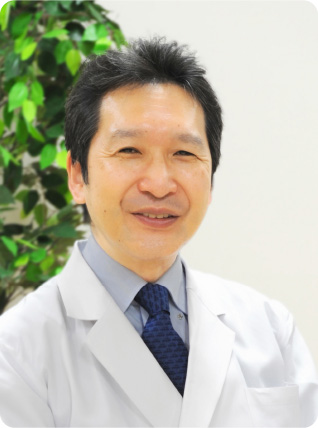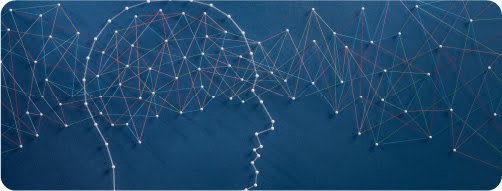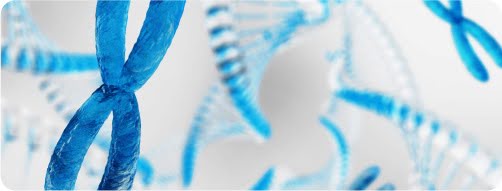About Us
Thank you for visiting the University of Tokyo Department of Neuropsychiatry website. We understand the challenges you and your loved ones may face, and we’re here to support you.
Our approach to psychiatric care goes beyond treating symptoms. We strive to understand each patient’s values and emotional struggles to help them achieve the life they want. We work closely with patients, their families, and our staff to make collaborative decisions. We’ve also included peer support workers in our team.
Patient-centered care and co-production are vital, though implementing them can be challenging. We’re committed to educating psychiatric residents, multidisciplinary staff, and students, and supporting mental health professionals nationwide.
Our heritage
The University of Tokyo Department of Neuropsychiatry, renowned for its long and distinguished history in Japan, was established in 1886 when Dr. Hajime Sakaki returned from Germany and became the first professor. This marked the beginning of psychiatric education and clinical practice at the Imperial University Medical School, with initial clinical activities conducted at the Tokyo Prefectural Lunatic Asylum, later known as Sugamo Hospital and now Matsuzawa Hospital.
Key milestones include the establishment of the Japanese Society of Neurology (now the Japanese Society of Psychiatry and Neurology) in 1903 by Dr. Shuzo Kure, which laid the foundation for modern psychiatry in Japan. Other significant events include the relocation to Matsuzawa Hospital in 1919 and the founding of the Brain Research Laboratory in 1936.
The department has experienced several changes, including its renaming to the “Department of Neuropsychiatry” in 1958 and the integration of outpatient and inpatient services in 1994. In 2001, the University of Tokyo Branch Hospital in Mejirodai merged with the main hospital in Hongo, uniting the previously separate branch hospital, inpatient, and outpatient services into a single cohesive unit.
In recent years, under Professor Kiyoto Kasai, the department has focused on advanced clinical functions, education and research. In 2018, the Schizophrenia AYA (Adolescent and Young Adult) Center was established, which was later renamed the AYA Generation Center in 2023 to comprehensively support the mental health of young individuals.
Our team

Professor and Chair
KASAI Kiyoto
Associate Professor
JINDE Seichiro
Associate Professor
ANDO Shuntaro
(Outpatient clinic manager)
Associate Professor
KANO Yukiko
(Chair of Child Psychiatry)
Lecturer
KONDO Shinsuke
(Director of Recovery Center)
Lecturer
ICHIHASHI Kayo
Lecturer
SAKAKIBARA Eisuke
(Medical office manager)
Assistant Professor
FUJIKAWA Shinya
(Psychiatric ward manager)
Assistant Professor
IKEGAME Tempei
(Director of Center for AYA)
Assistant Professor
MORITA Kentaro
(Psychiatric rehabilitation manager)
and a total of 25 assistant professors, fellows, and residents work at our hospital.
Patient Care
We offer comprehensive mental health services for individuals of all ages, including international students and foreign residents in Japan. Our outpatient services include programs to support various needs. We have three outpatient programs: Day Hospital for young adults with schizophrenia, Recovery Center for those with mood and anxiety disorders, and Psychiatric Occupational Therapy to aid in mental health recovery. For inpatient care, we provide both open and closed wards. The open ward offers a supportive environment for rest, medication adjustments, and thorough diagnostic evaluations for adults aged 18 and over with depressive symptoms or developmental disorders. Our closed ward is designed for acute psychiatric care, featuring seclusion rooms and specialized treatments like electroconvulsive therapy and Clozapine administration, catering to patients with severe mental health conditions and comorbid physical illnesses. We treat a wide range of psychiatric conditions, including schizophrenia, bipolar disorder, major depressive disorder, anxiety disorders, panic disorder, obsessive-compulsive disorder, and adjustment disorders. We also cover neurodevelopmental disorders, child and adolescent psychiatric disorders, psychiatric conditions associated with physical illnesses, eating disorders, dementia. We are particularly focused on the care and treatment of 22q11.2 deletion syndrome because it is associated not only with physical disabilities, such as cardiac malformations, but also with intellectual disabilities and psychiatric disorders, such as schizophrenia. Please note that a referral letter is required for new patient appointments.
Career Opportunities
We welcome researchers and doctors from abroad who are interested in our clinical training programs. Applicants should either hold a valid medical license in Japan or possess a master’s degree or higher in their respective fields. For details on clinical training programs for medical professionals with foreign medical licenses, please visit here. For details on our annual doctoral program recruitment, please visit the Neuroscience Division of our university. We welcome individuals with a master's degree or higher in clinical psychology, mental health and welfare, experimental psychology, information engineering, molecular biology, and related fields.
Research and Innovation
Our Research Focus
At our department, we specialize in understanding the mental development and recovery of adolescents and young adults (AYA).
Our research integrates biological studies like MRI neuroimaging, EEG, and genomics with psychosocial research, including large-scale cohort studies, clinical epidemiology, and qualitative studies with patients and families. This interdisciplinary approach is woven into our clinical activities and involves collaboration with researchers both within and outside our department.
We are leading the Tokyo Teen Cohort (TTC) study on adolescent mental growth in collaboration with the Tokyo Metropolitan Institute of Medical Science and the Graduate University for Advanced Studies. This study, which began at age 10, now includes data up to age 19, offering valuable long-term insights.
To address mental health issues and recovery in adolescence, we conduct comprehensive research on early risk factors and outcomes through imaging measurements and psychosocial interventions, focusing on young people with mental health concerns.
In our efforts to promote early intervention and enhance psychological resilience, we develop mental health textbooks and teaching materials for middle and high school students. Our staff also visits metropolitan schools to share our research findings.
We collaborate with domestic and international research facilities on various projects, including brain imaging and translational research.
Recently, we initiated psychosocial and biological research on individuals with 22q11.2 deletion syndrome and their caregivers, emphasizing co-production of research. Our team includes young researchers interested in neuropathology and meta-analysis, promising further advancements.
Large-scale collaborative research projects led by our department
We are establishing an international research consortium, including Japan and other Asian countries, to study brain maturation in the AYA (Adolescent and Young Adult) generation. By sharing and analyzing MRI data, we aim to uncover the mechanisms behind the onset of mental disorders in this age group.
In this research, we focus on elucidating the mechanisms of brain predictive impairment in mental disorders through a bidirectional translational approach, spanning humans with and without mental disorders, non-human primates, and mice. We conduct various analyses, including MRI, EEG, cortical EEG, eye movement studies, and molecular analysis in humans, as well as genetic and EEG analysis in disease model animals.
In this research, we aim to uncover the developmental processes and mechanisms of human individuation during adolescence. We employ an academic transformation that combines large-scale science with brain-behavior science. This approach includes the self-individuation of scholars, co-creation with user-researchers with minority characteristics, and the study of interactions between individual brains and the world, guided by principles of regularity and narrative.
Teen Cohort Study

We conduct research as part of the Tokyo Teen Cohort, targeting children who were 10 years old at the start of the study and living in Setagaya Ward, Chofu City, and Mitaka City, along with their caregivers. By managing this cohort and analyzing the psychosocial and biological data obtained, we aim to clarify the growth of adolescents and the various stresses and influencing factors they encounter during this period.
Brain imaging research

Using brain MRI, we collaborate with domestic and international institutions to study the brain regions involved in various mental disorders and their stages. Our research includes cross-disease studies and examines the relationships between brain regions, genomic and epigenomic findings, and psychosocial indicators.
Physiological research

We analyze brain activity in mental disorders using modalities such as EEG and near-infrared spectroscopy (NIRS), and eye movements. For EEG, we focus on event-related potentials, which are brain wave components responding to specific stimuli, to understand their relationship with mental disorders.
Clinical epidemiology research

We conduct research using extensive clinical data accumulated from inpatient and outpatient care, as well as psychiatric liaison services. This research involves a detailed examination of patient demographics and their subsequent outcomes.
Molecular biology research

We conduct genome and epigenome research using blood and other samples from both patients and healthy controls. Additionally, we study the functions of specific genes and brain regions through animal models and cultured cells.
